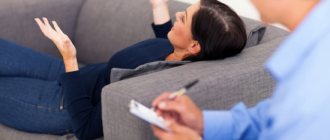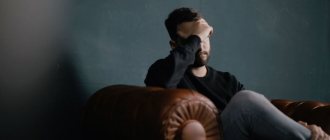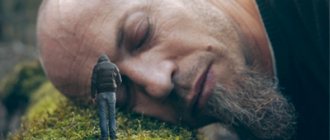What is insomnia
Insomnia, or in medical language - insomnia, is considered to be any deviation from normal sleep. Frequent awakenings in the middle of the night, prolonged (up to several hours) falling asleep and difficult awakenings, prolonged absence of sleep at night, shallow sleep - all this is considered to be manifestations of insomnia. Everyone has had periods in their life when they experienced the effects of insomnia on themselves. She especially likes to come before an important event, on the eve of a celebration or exam, when a person is making an important decision in life, to young mothers who hear the slightest rustle of the baby.
More often than not, insomnia is a byproduct of our nervous system, which is known to be unstable, especially in today's pace and lifestyle. The disease can have several types of manifestation.
Presomnia type of disorder
Characterized by prolonged falling asleep. At this time, a person experiences a physical need for rest, feels the desire to fall asleep, but cannot do this. The norm for falling asleep is 5-15 minutes. If after this time sleep has not occurred, we can talk about manifestations of insomnia. This is usually associated with neuropsychological disorders and occurs on the eve of exciting events or after important events. It occurs very often and usually goes away on its own as the emotional state improves.
Intrasomnic disorders
With this type of insomnia, sudden awakenings at night occur, followed by difficulty falling asleep or a complete lack of further sleep. This type of disorder makes sleep superficial, reminiscent of a normal nap and sensitive, when the sleeper is able to wake up from the slightest rustle. Insomnia in this case is caused by emotional swings, experiencing unpleasant events, mental disorders, sleep apnea and self-snoring, systemic diseases (thyroid gland, diabetes mellitus).
Postsomnia disorders
This type is even more common than the first. Its main symptom is a lack of strength and desire to open your eyes, a long awakening, weakness and fatigue even after a whole night of restful sleep. A person suffering from this type of insomnia feels drowsy throughout the day and fails when trying to replenish energy and fall asleep. In addition to psychological reasons, in this case there may be a deficiency of vitamins and minerals, late going to bed, blues and emotional stress. Usually, with this disorder, a person easily falls asleep and sleeps soundly at night, but waking up in the morning causes negative emotions and physical impotence.
But before diagnosing insomnia, it is worth assessing your habits, current state of affairs, and emotional state. Often the reason may lie on the surface.
Content:
- Causes and Effects
- Solution
- Psychotherapy in the treatment of insomnia in men
Sleep is a natural process that is inherent in every person. However, a number of reasons have a negative impact on it and cause its disturbances. This problem is inherent not only to women, but also to the stronger half of humanity. Therefore, treatment of insomnia in men is relevant all over the world.
Causes of insomnia
Psycho-social stress. For example, this happens due to excessive anxiety about money and work, illness of children and loved ones. When crises happen in your personal life and you conduct an internal dialogue, bringing to perfection what you haven’t done in reality.
Depression
of a different nature, a state of blues and anxiety;
Increased brain activity
and emotional overarousal, both positive and negative. This often happens during sessions, before and after important business meetings, before trips and vacations, during periods of intense activity and multitasking. elderly age;
Discomfort
both mental and physical, the influence of extraneous sounds, light, noise. Darkness is one of the main conditions under which the sleep hormone melatonin is produced in sufficient quantities. The slightest lighting, watching TV or a phone monitor before bed can affect the quality of melatonin production and disrupt sleep. Often the cause of poor sleep can be discomfort caused by bedding - an uncomfortable pillow, too hard, too soft, uneven mattress. In this case, solving the problem becomes less problematic;
Non-compliance with the regime
day and biorhythms. For example, a shift work schedule, frequent time zone changes. This often happens with simple night owls, the so-called “night owls,” whose peak activity occurs in the afternoon and evening. It is difficult for them to go to bed on time, it is difficult for them to fall asleep and wake up at the appointed early hour, because a lot of time, energy and effort have been spent trying to sleep;
Alcohol
and caffeinated drinks. They also cause sleep disturbances. Especially if drinking such drinks happened in the evening. Needless to say how harmful they are for healthy sleep. Alcohol is wrongly considered by some to be a sedative and hypnotic. While it may actually make it easier to fall asleep, the quality of your sleep will suffer significantly. And all because alcohol inhibits the REM sleep phase. The same one during which the body’s strength is restored, when we dream and our brain organizes the information received. In addition, alcohol and caffeine can put a strain on the cardiovascular system, provoke snoring and sleep apnea, which act like a time bomb on the body, provoking both mental and functional disorders;
Apnea
- breathing disorders that can occur under the influence of substances, or due to the structural features of the nasopharynx, when obstacles appear in the air path in the form of a sticky palate and uvula, a deviated nasal septum, adenoids, cysts, allergies or a runny nose.
Taking medications (sympathomimetics, anorectics), drugs. Carefully read the instructions for any medications you take. One of the side effects may be increased excitability. It is for this reason that drugs such as echinacea, ginseng and many other adaptogens are not recommended to be taken in the afternoon, but rather from morning until lunch. Diseases and disorders.
Infectious and colds, fever, itchy skin and pain of various locations and origins;
Endocrine diseases
accompanied by hypoglycemia, frequent urination, dry mouth. Do you drink a glass of water before bed? Do you wake up to drink or from feeling hungry? It's time to change something;
Neurological diseases
such as dementia, Parkinson's disease, traumatic brain injury, neuroses or schizophrenia.
When is it time to sound the alarm?
“If the process of falling asleep lasts more than 20 minutes, and this situation lasts a week or more, this is a reason to consult a doctor,” says Gleb Lutokhin, a somnologist at the Semeynaya clinic. — If a person tosses and turns for a long time before going to bed, often wakes up during sleep and then cannot fall back to sleep for 5-10 minutes, this is a reason to think about it. Especially if these processes are accompanied by anxiety and obsessive thoughts.”
Insomnia has many adverse effects. The body does not have time to recover, the functioning of almost all systems and organs is disrupted. The nervous system suffers the most; the cardiovascular and endocrine systems, as well as the kidneys, work under stress.
“About 40% of my patients have a sleep disorder,” says GMS Clinic neurologist Sergei Makarov. — In young people, insomnia is a consequence of anxiety disorders or disruption of the daily routine. Due to the coronavirus epidemic, many people work from home until late and then sleep until lunch. And due to overexertion and lack of personal space, insomnia occurs. In older people, sleep disturbances can be caused by diseases of the heart, lungs, other internal organs, or chronic pain.”
So a young girl turned to Doctor Makarov. During the interview, it turned out that in addition to bad habits - smoking and drinking alcohol - she suffered from an incorrect daily routine. At night on weekends, the girl “hanged out” in bars and discos, sleeping off during the day. It is not surprising that the work week was difficult for the patient. The body did not have time to adapt to the daily routine when the weekend came again and history repeated itself.
Consequences of insomnia
Before taking action, it is important to assess the scale of the disaster. Lack of quality sleep and the slightest disturbance lasting from a week to 10 days is not a reason to panic. The episodic nature of disorders of varying sleep duration occurs in everyone. But serious disorders that torment for months become chronic and have consequences.
- Problems concentrating,
- Difficulties with remembering and learning,
- Decreased performance
- Apathy or obsessiveness
- Development of depressive states
- Loss of interest in life
- Irritability and aggression
- Manifestation of somatic diseases
- Chronic fatigue
- Arterial pressure
- Headache
- Disorders of the cardiovascular system
- Excess weight
- Edema
- Deterioration in skin quality and overall appearance
And this is only a small part of the consequences of insomnia, which can be avoided by starting insomnia therapy or its prevention in time. The best remedies for insomnia
Literature:
- How to get rid of insomnia: [Let's modernize. methods of treatment] / L. V. Berezhkova. - St. Petersburg. : Neva, 2003. - 120 p.
- How to overcome insomnia / Peter Hauri, Shirley Linde; Per. from English [YU. Yezersky]. — Ed., revised. - Moscow: Alpina Publisher, 2002 (JSC Mozhaisk Printing Plant). — 295 p.
- Self-help for insomnia, stress and neuroses: [Trans. from German] / Ulf Bemich; Under scientific ed. V. T. Kondrashenko. - Minsk: Polymya, 1985. - 75, [2] p.
The text was checked by expert doctors: Head of the socio-psychological service of the Alkoklinik MC, psychologist Yu.P. Baranova, L.A. Serova, a psychiatrist-narcologist.
CAN'T FIND THE ANSWER?
Consult a specialist
Or call: +7 (495) 798-30-80
Call! We work around the clock!
The best remedies for insomnia
Medicines
Melaxen
A synthetic analogue of the hormone melatonin, responsible for sleep. The drug quickly normalizes and correctly regulates biorhythms. Increases the depth and quality of sleep, eliminates periodic night awakenings. After a night with Melaxen, the feeling of weakness disappears, lethargy and fatigue disappear, dreams become bright and rich. Also suitable as an adaptogen when changing time zones. Reduces negative reactions to stress. Does not cause dependence or addiction.
Recommended course as a sleeping pill: 1 tablet 1 time per day before bedtime. As an adaptogen: the day before the expected departure and for 2-3 days after changing the time zone before bed.
Mälarena
The drug is an analogue of Melaxen. Also indicated for circadian rhythm disorders: flights with changes in time zones, violation of the daily routine, including shift work schedule. Helps eliminate weather dependence syndrome, fatigue, insomnia in older people, and reduces depressive syndrome.
Recommended course: For insomnia and sleep disorders, 1 tablet once a day, 30 minutes before bedtime. The duration of taking the drug is from 1.5 to 2 months. When changing time zones the day before departure and for 2-5 days after, 1 tablet 1 time per day before bed.
Melarithm
The effect on the body is similar to previous drugs. Normalizes circadian rhythms; Makes sleep deep and of high quality, eliminates night awakenings and promotes rapid fall asleep. But in addition to regulating sleep, melarhythm helps improve well-being, mood, and eliminates lethargy and morning drowsiness. It has a pronounced immunostimulating and antioxidant effect.
Recommended course: 1.5–3 mg 30 minutes before bedtime, 1 time per day. Duration of admission is no more than 7 days.
Herbal preparations
Nervochel
A homeopathic medicine designed to reduce increased nervous excitability and normalize sleep. Used for neuroses and menopause in women. Eliminates symptoms of depression and blues, VSD.
Recommended course: 2-3 weeks,
dissolve 1 tablet under the tongue 3 times a day 30 minutes before meals or 1 hour after meals.
Motherwort forte Evalar
Motherwort has a pronounced calming effect, strengthens the nerves, and puts the cardiovascular system in order. The advantage of the drug is that it additionally contains magnesium, and as is known, this microelement plays a key role in the functioning of the nervous system and eliminates muscle excitability. In combination with vitamin B6, which is the main link in the functioning of the nervous system, magnesium is better absorbed by the body. The drug performs a complex effect - it normalizes the emotional state, relieving anxiety and aggression, and at the same time improves sleep.
Recommended course: 3-4 times a day, 1 tablet for 3-6 weeks.
Novo-passit
Completely herbal preparation. Recommended for neurasthenia, increased anxiety, emotional instability, aggressiveness and irritation. Helps overcome fears, eliminate distraction and fatigue. Helps cope with headaches and mild forms of insomnia and periodic sleep disorders associated with psychological tension and stress. The advantage is that it is acceptable for children over 12 years of age.
Recommended course: 5 ml 3 times a day before meals with the prospect of increasing the dose to 10 ml per dose. If severe fatigue or depression occurs, it is necessary to reduce the morning and daily dose by 2 times and take 2.5 ml in the morning and afternoon and 5 ml in the evening. The interval between doses of the medicine should be 4-6 hours.
Knightwell
An excellent and effective drug, with many positive reviews. The herbal composition is enhanced with Magnesium and vitamin B6. Includes mechanisms that are responsible for maintaining normal sleep and deep sleep. Waking up in the morning becomes comfortable, light, without feeling groggy and tired. In addition, Nightwell promotes better concentration, memory and performance, because Magnesium in combination with vitamin B6 has a beneficial effect on the nervous system.
Recommended course: just 1 capsule before bedtime. Duration of treatment is 3 weeks.
Which doctor will bring back sleep?
If a person is seriously concerned about a sleep disorder, he or she should contact a somnologist. He must find the root cause of the problem and, if necessary, refer to another specialist. The main type of diagnosis is polysomnography. This is a comprehensive sleep study that records the characteristics of breathing, heartbeat, and bioelectrical activity of the patient’s brain in a sleepy state. The procedure is usually performed in a clinical sleep laboratory.
Polysomnography reliably detects sleep apnea, in which the patient is suffocating and cannot sleep. The procedure allows you to determine heart rhythm disorder syndrome, in which a person wakes up with a heartbeat that is elevated to 150-160 beats per minute. Then he is sent to a cardiologist, and then usually to a surgeon.
Older people often suffer from disturbances in the perception of sleep, when insomnia itself may not exist. Often the patient claims that he has not slept a minute for many years. When the sleep of such a person is studied in detail in the laboratory, it usually turns out that he sleeps superficially, with frequent awakenings, but sleeps through his 6-7 hours a day.
How to get rid of insomnia
Any changes in life require time and effort. Internal effort and a real desire to change the situation for the better. To get rid of insomnia, you will have to reconsider your lifestyle, first of all, paying special attention to four pillars:
- Sleep hygiene.
This is not only water procedures and ritual teeth cleaning. Sleep hygiene is a broad concept. Stop eating and drinking at least 3 hours before bedtime; in the evening, try to use dim lighting; Avoid reading books, scrolling through social media feeds immediately before bed, and do not fall asleep with the TV on; At night, turn off electrical appliances in the bedroom, if any, turn off the sound and Internet on your smartphone; - Control of emotions.
Nerves are the main cause of all human troubles and joys. Like any instrument, nerves need tuning, prevention, cleaning and strengthening. It is important not only to make daily efforts to maintain your emotional state, but also to regularly support the nervous system with vitamins. Moreover, change your attitude towards yourself by starting to observe sleep hygiene - go to bed early, ventilate the bedroom, learn how to relax before bed, so that internal dialogues do not arise in your head as a consequence of the day. - Diet.
We are what we eat. The statement is absolutely true in matters of combating insomnia. Fatty, spicy, salty foods, fast food and abuse of sugar, sweet and alcoholic drinks can have such a strong impact on the body that insomnia very quickly comes to such belly celebrations. It is better to include pumpkin and pumpkin seeds, sesame seeds, spinach, cottage cheese in your diet - such food contains amino acids and microelements that have a beneficial effect on the nervous system, and therefore on the quality of sleep. - Taking care of your health.
Physical activity, sports and general activity help the body to be in good shape, which means maintaining the level of serotonin and endorphins in sufficient quantities so that the nervous system feels good. This means your sleep will be of high quality, calm and complete. But, doing physical exercise before bed is not the best idea, because at this moment the nervous system comes into a state of excitement. In the evening, breathing practices and yoga are best.
Treatment of insomnia at the Leto clinic
The key to successful treatment of insomnia is the impact on the immediate cause of the disease. Doctors ask the patient to undergo a comprehensive examination to identify possible health problems, and further treatment tactics are determined based on the results obtained.
But this process may take several weeks, so the patient is prescribed a short course of sleeping pills. In addition, it is recommended to create the most comfortable conditions for sleeping: purchase new bed linen, hang thick curtains on the windows, think about sound insulation or use earplugs, etc.
Quality rest is the basic need of any person. There is no need to endure constant discomfort - contact our doctors! You can make an appointment by calling 24/7 anonymously at 8(969)060-93-93 .
Medical conditions
Heart diseases that can lead to sleep disturbances include myocardial ischemia and congestive heart failure. Neurological conditions include stroke, degenerative diseases, dementia, peripheral nerve injury, myoclonic seizures, restless legs syndrome and central sleep apnea. Endocrine diseases affecting sleep are associated with hyperthyroidism, menopause, the menstrual cycle, pregnancy and hypogonadism in older men.
Pulmonary diseases include diseases such as chronic obstructive pulmonary disease, bronchial asthma, central alveolar hypoventilation and obstructive sleep apnea (associated with snoring). Gastrointestinal conditions include gastroesophageal reflux. Hematological diseases include: paroxysmal nocturnal hemoglobinuria, hemolytic anemia associated with brownish-red morning urine.
Substances that can lead to insomnia include stimulants, opiates, caffeine and alcohol, or quitting any of these can cause insomnia. Medications that may be implicated in insomnia include: decongestants, corticosteroids, and bronchodilators.
Other conditions that can affect sleep include fever, pain and infection.










